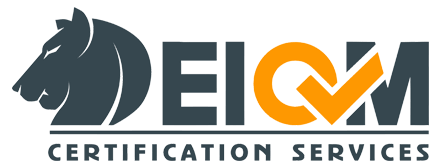Halal certification is crucial for both producers and consumers. In today’s multicultural society, the demand for halal-certified products has significantly increased. Halal is an Arabic term that translates to “permissible” and refers to food and other items that are prepared and produced according to Islamic dietary laws. The Halal mark on food products provides assurance to Muslims that the items they consume comply with these dietary guidelines. In this article, we will delve into the significance of the Halal standard and explore the requirements for obtaining the Halal mark on food products.
What Does Halal Mean?
Halal, in Islamic dietary laws, refers to what is permissible according to the teachings of the Quran. It applies not only to food and beverages but also to various aspects of life, including personal care products, cosmetics, and pharmaceuticals. Halal encompasses the notion of cleanliness, hygiene, and ethical sourcing.
The Importance of Halal Certification
Halal certification is crucial for both producers and consumers. For producers, obtaining the Halal mark allows them to tap into the growing halal market and cater to the needs of Muslim consumers. For consumers, the Halal mark provides assurance that the products they purchase meet their religious and dietary requirements.
Guidelines for Halal Certification
Halal certification is based on specific guidelines derived from Islamic law. These guidelines prohibit the consumption of pork, alcohol, and any ingredients derived from animals that were not slaughtered according to Islamic rites. Additionally, the use of non-Halal additives and cross-contamination with non-Halal products must be avoided.
The Halal Certification Process
The process of obtaining Halal certification involves several steps. Firstly, the manufacturer or producer must submit an application to a recognized Halal certification authority. This authority will evaluate the production process, ingredients used, and the overall compliance with Halal standards. If the requirements are met, the product is granted the Halal mark.
Ensuring Halal Integrity in the Supply Chain
Maintaining Halal integrity throughout the supply chain is essential. This includes sourcing Halal ingredients, ensuring separate storage and transportation for Halal and non-Halal products, and implementing strict quality control measures. Regular audits and inspections are conducted to verify compliance at every stage.
Benefits of Obtaining Halal Certification
Halal certification offers numerous benefits for businesses. Firstly, it allows access to the global halal market, which has a significant consumer base. It also enhances consumer trust and credibility, as the Halal mark is a recognized symbol of compliance with Islamic dietary laws. Halal certification can lead to increased sales and improved market competitiveness.
Consumer Trust and Halal
For Muslim consumers, the Halal mark instills confidence and trust in the products they purchase. They can rely on the Halal mark as a clear indication that the food items they consume align with their religious beliefs and dietary restrictions. This trust fosters loyalty and encourages repeat purchases, creating a loyal customer base for Halal-certified brands.
The Global Halal Market
The global Halal market has witnessed significant growth in recent years. With an estimated 1.8 billion Muslims worldwide, the demand for Halal products continues to rise. The Halal market encompasses various sectors, including food and beverages, pharmaceuticals, cosmetics, and tourism. Companies that tap into this market can benefit from a vast consumer base and increased profitability.
Challenges in Halal Certification
Obtaining Halal certification can present certain challenges for businesses. The requirements and standards set by different certification authorities may vary, creating confusion and complexity. Additionally, ensuring complete Halal integrity throughout the supply chain can be a logistical challenge, particularly for multinational companies with multiple production facilities and distribution channels.
The Role of Halal Certification Authorities
Halal certification authorities play a crucial role in verifying and granting the Halal mark to eligible products. These authorities consist of scholars and experts in Islamic law and dietary regulations. Their role is to ensure that manufacturers and producers adhere to the strict Halal guidelines and maintain the integrity of the certification process.
Halal Standards and Local Regulations
Halal standards can vary across different regions and countries due to variations in cultural practices and interpretations of Islamic law. Local regulations may also impact the requirements for obtaining Halal certification. Businesses operating in multiple markets must navigate these variations to ensure compliance and access to the Halal market in each region.
Halal Packaging and Labeling
Proper packaging and labeling are essential for Halal-certified products. Clear and accurate labeling helps Muslim consumers identify Halal products easily. Packaging materials should also comply with Halal standards to prevent contamination. This certification logos and symbols should be prominently displayed on the packaging to provide visual assurance to consumers.
Halal Tourism and Hospitality
Halal tourism and hospitality have gained prominence in recent years. Muslim travelers seek destinations and accommodation options that cater to their dietary needs and provide facilities aligned with Islamic principles. Halal restaurants, prayer facilities, and Halal-certified food options play a significant role in attracting Muslim tourists.
Halal Cosmetics and Personal Care Products
this principles extend beyond food and beverages to include cosmetics and personal care products. Halal-certified cosmetics are free from ingredients that are prohibited in Islamic law, such as alcohol and animal-derived substances. Muslim consumers are increasingly seeking Halal cosmetics, creating opportunities for companies to cater to this growing market segment.
Halal and Health Considerations
Halal products often align with healthy eating practices. The emphasis on cleanliness, hygiene, and ethical sourcing in Halal production contributes to healthier food choices. Additionally, Halal-certified products are typically free from certain additives and ingredients that may be harmful to health. This intersection between Halal and health-conscious consumers presents a unique opportunity for businesses.
Conclusion
The Halal mark on food products serves as a symbol of compliance with Islamic dietary laws and provides assurance to Muslim consumers. Halal certification opens doors to a growing global market and fosters consumer trust and loyalty. By understanding the guidelines, challenges, and benefits associated with Halal certification, businesses can navigate the Halal landscape and tap into the immense potential of this market.
Contact EIQM
To contact us, please fill out the form below. We will contact you as soon as possible. You can also apply through this form if you would like to receive system certification or representation of EIQM Certification Body.

